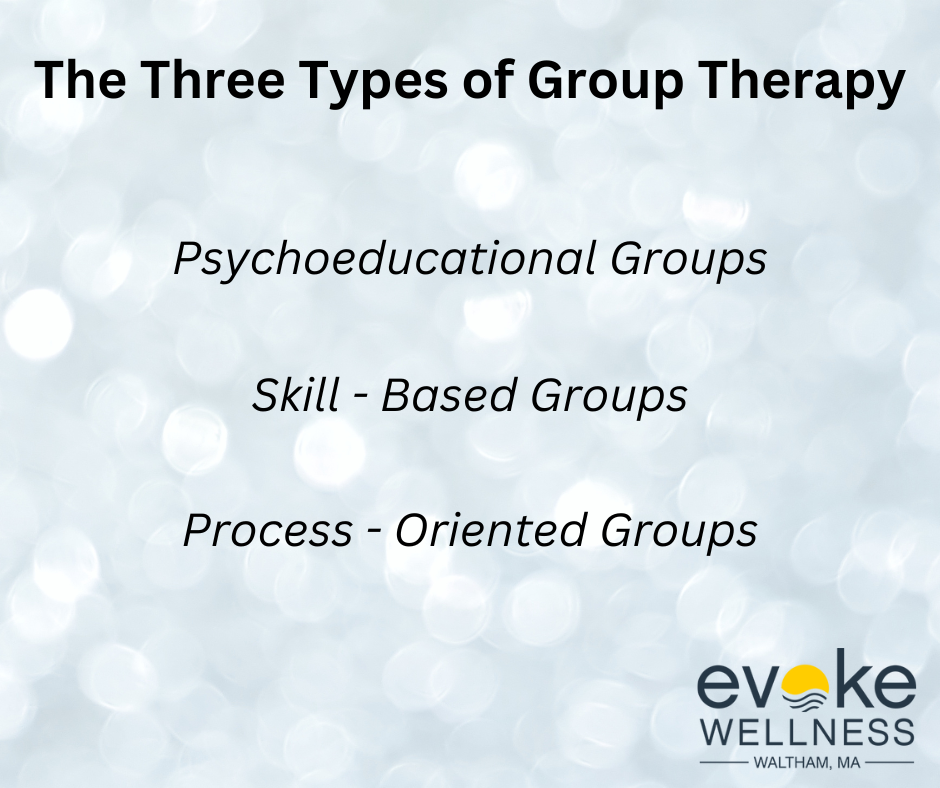Have you ever felt alone in your struggle with addiction? Group therapy for substance abuse treatment offers a powerful antidote to isolation. By joining others on similar journeys, you can find strength, support, and new perspectives. This collaborative approach taps into the healing power of shared experiences and mutual understanding.
Key Benefits of Group Therapy:
- Reduced feelings of isolation
- Peer support and accountability
- Diverse coping strategies
- Improved communication skills
As you embark on your recovery, consider how group therapy can amplify your efforts. In this article, we’ll explore the transformative potential of group dynamics in substance abuse treatment and how you can leverage this approach to bolster your path to lasting sobriety.
Call us at (833) 287-7223 today or reach out online.
The Power of Group Therapy in Substance Abuse Treatment
Finding Strength in Shared Experiences
Group therapy harnesses the incredible power of shared experiences. As you open up to others battling similar addictions, a profound sense of community emerges. No longer do you feel alone on this challenging journey.
Fostering Accountability and Support
Within the group setting, you gain a supportive network committed to your recovery. Witnessing others’ triumphs inspires hope, while their setbacks serve as cautionary tales. This dynamic fosters mutual accountability – keeping one another on track.
Gaining Invaluable Perspectives
Through group interactions, you access a wealth of perspectives and coping strategies. Learning from diverse backgrounds and experiences expands your toolbox for overcoming triggers and cravings. This collective wisdom proves invaluable.
Cultivating Empathy and Understanding
As you listen to others’ stories with empathy, your own self-compassion grows. The stigma surrounding addiction fades, allowing for deeper healing. This environment nurtures understanding – of yourself and others – catalyzing lasting recovery.
What Do You Mean by Group Therapy?
A Safe Space for Shared Healing
Group therapy involves regular meetings where individuals dealing with similar issues come together. In the context of substance abuse recovery, these sessions provide a supportive environment to:
- Share experiences and coping strategies
- Learn from others’ journeys
- Build accountability and motivation
Strength in Numbers
The group dynamic offers unique benefits that individual therapy cannot replicate:
- A sense of belonging and understanding
- Diverse perspectives to reframe challenges
- Peer encouragement to stay on track
With shared goals, group members inspire and uplift each other through the inevitable ups and downs.
Professional Guidance
While embracing peer support, these sessions are facilitated by licensed therapists. Their role is to create a structured, judgment-free zone where participants can openly process emotions and gain insights.
The combination of professional expertise and the powerful group dynamic can be transformative for substance abuse recovery.
The Three Types of Group Therapy
Psychoeducational Groups
- Provide education and information on substance abuse
- Help members understand addiction and recovery process
- Led by a professional therapist or counselor
Skills-Based Groups
- Focus on developing coping strategies and life skills
- Practice techniques like stress management, relapse prevention
- Build confidence in maintaining sobriety
Process-Oriented Groups
- Explore interpersonal relationships and dynamics
- Share experiences, provide support and feedback
- Promote self-awareness, emotional expression
In group therapy for substance abuse, these complementary approaches offer comprehensive treatment. Psychoeducation nurtures understanding, skills training equips for challenges, and the group process cultivates crucial support networks. United, they empower lasting recovery.
An Example of Group Therapy for Substance Abuse
Introducing Refuge Recovery
Refuge Recovery is a non-profit organization offering Buddhist-inspired group therapy for those recovering from addiction. Their approach blends mindfulness practices with peer support and community-building.
Key Program Elements
- Meditation instruction to cultivate awareness
- Study of Buddhist teachings on addiction
- Peer-led sharing and discussion groups
- Weekly meetings and regular group activities
Tailoring the Group Dynamic
Refuge Recovery groups aim to create a safe, judgment-free space where members can openly share struggles and victories. Facilitators guide discussions to address common issues like:
- Cravings and relapse prevention strategies
- Repairing relationships impacted by addiction
- Developing a spiritual practice for ongoing recovery
With its blend of mindfulness training, mutual support, and the wisdom of Buddhist psychology, Refuge Recovery exemplifies how group therapy can harness the power of the group dynamic to aid substance abuse recovery.
The Four Stages of Group Therapy
Group therapy for substance abuse recovery follows a typical progression through four distinct stages. Understanding these stages can help set expectations and maximize the benefits.
Initial Formation and Orientation
- Introductions and building rapport
- Establishing group norms and goals
- Developing a sense of safety and trust
Transition and Conflict Resolution
- Navigating interpersonal conflicts
- Addressing resistance or defensiveness
- Fostering cohesion and commitment
Working and Change
- Openly sharing struggles and insights
- Providing mutual support and feedback
- Practicing new coping strategies
Termination and Closure
- Reflecting on growth and accomplishments
- Preparing for life after group therapy
- Celebrating successes and next steps
By progressing through these phases, group members find strength in shared experiences – reducing shame, building skills, and fostering lasting recovery.
FAQ: What is Group Therapy in Substance Abuse Treatment?
The Power of Shared Experiences
Group therapy provides a supportive environment where individuals can connect with others facing similar challenges. In these sessions, participants share their stories, setbacks, and successes – fostering a profound sense of belonging.
- Build authentic connections
- Foster accountability
- Gain diverse perspectives
Expert Guidance
Led by trained therapists, these groups offer expert guidance tailored to substance abuse recovery. Participants learn coping strategies, relapse prevention techniques, and tools for sustaining sobriety.
- Evidence-based approaches
- Develop healthy habits
- Explore underlying issues
Collective Healing
By witnessing others’ journeys, group members find solace in realizing they’re not alone. This collective healing experience empowers individuals, instilling hope for lasting change.
- Inspire motivation
- Celebrate milestones
- Gain broader insights
Group therapy harnesses the transformative power of shared experiences, fostering an environment conducive to overcoming substance abuse. United, individuals can break free from addiction’s grip.
Conclusion
In conclusion, group therapy is a powerful tool in substance abuse treatment that can accelerate your recovery journey. By harnessing the group dynamic, you’ll find:
- Support: A network of peers who understand your struggles
- Accountability: Motivation to stay committed to sobriety
- Insight: New perspectives on your addiction and recovery
Remember, your experiences and challenges are valuable contributions to the group. As you progress in your recovery, you’ll not only heal yourself but also inspire others. Embrace the opportunity to connect, share, and grow within your group therapy sessions. With dedication and openness, you’ll discover that the strength of the collective can propel you towards lasting sobriety and a fulfilling life free from substance abuse.
Begin Your Journey with Evoke Wellness at Waltham
If you or a loved one is considering outpatient treatment, Evoke Wellness at Waltham invites you to contact us. Our compassionate team is ready to answer your questions, discuss your needs, and help you take the first steps toward recovery. At Evoke Wellness, you will find more than just a treatment program – you’ll discover a community dedicated to your wellness and success. Together, let’s embrace the journey to recovery and the promise of a new beginning. Call us at (833) 287-7223 today or reach out online.



